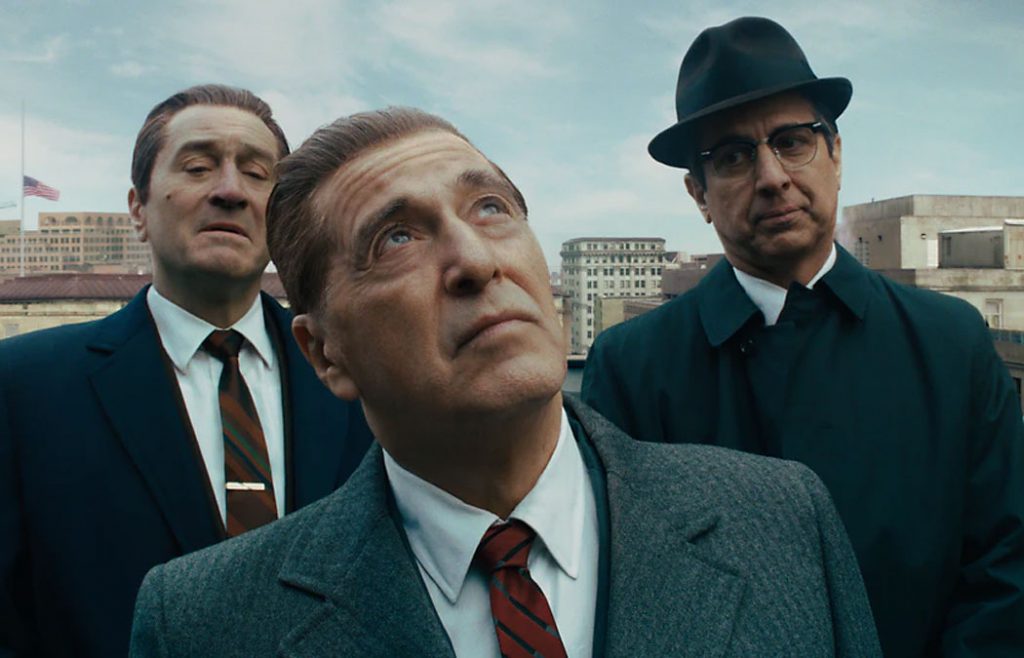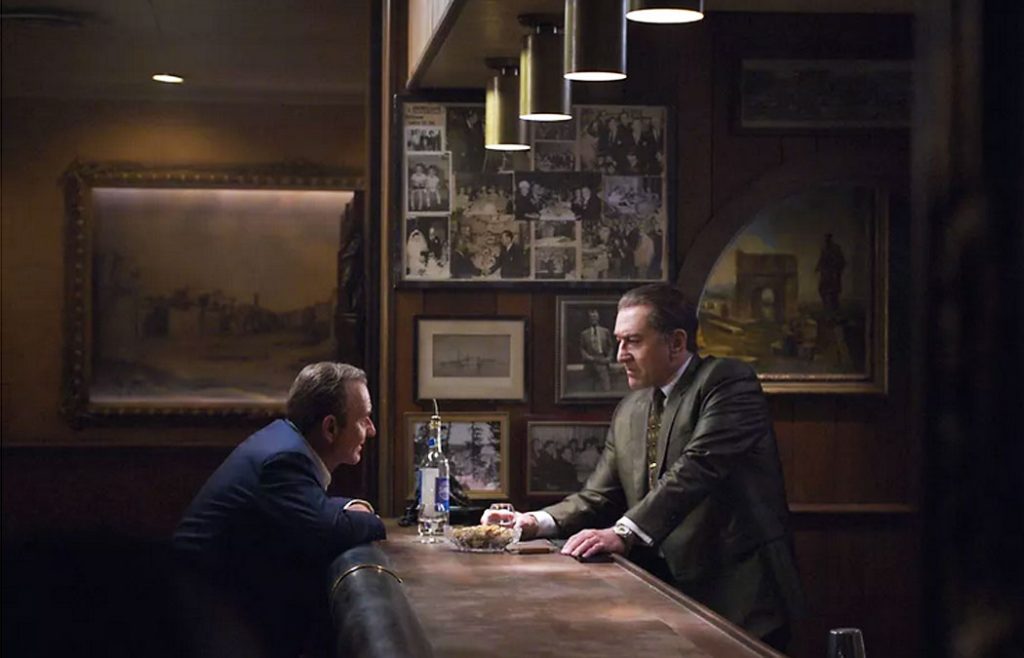
Director Martin Scorsese revisits familiar territory in The Irishman: the world of the Mafia, with its dark undertow of rampant crime and brutal violence that inevitably sucks the souls out of the people who live in thrall to that world. The film focuses on the intertwined relationship of power, love, loyalty, and mutual benefit between three men: mafia don Russell Bufalino (Joe Pesci), hit man Frank Sheeran (Robert De Niro) and Teamsters Union leader Jimmy Hoffa (Al Pacino).
Narrated from a wheelchair by an elderly Frank—the Irishman of the title—the story, as he tells it, starts when as a young truck driver he crosses paths with Russell and is willingly drawn into working for the man—first, as a trucker, then as an assassin and bodyguard. Eventually, Russell sends Frank to work for Hoffa, the self-proclaimed savior and hero of America’s truckers, who is funneling millions of the Teamsters’ pension fund to mafia enterprises. Frank’s three-way relationship with Russell and Jimmy deepens into a foundational friendship he values above all others, even above his wife and suspicious daughter (Anna Paquin). But there is a heavy price to pay for this friendship—one that the impassive, elderly Frank cannot directly acknowledge, but which the audience perceives in all its tragedy and horror.
De Niro turns in a subtle yet revealing performance. He portrays a man who suppresses all his emotions, as they would interfere with his “work,” which he executes (no pun intended) with an unfeeling and deadly efficiency. Nevertheless, emotions—fear, anxiety, heartbreak, guilt—flicker in his eyes and show in the tension in his mouth and facial muscles. The audience sees it and knows it, even if Frank says very little onscreen. He’s a man of action, loyalty, and obedience, not words, yet his life speaks volumes about a lost and devastated soul.

Pesci plays a completely different character from his many previous roles playing the high-strung motor-mouth who’s out of control. As Russell, he’s always cool, calm, understated, deliberate, and quiet—exuding absolute authority, calculated decision-making, and ruthlessness as necessary. Inexplicably, he bestows his friendship, protection, and patronage on Frank, who in gratitude renders him unquestioning loyalty and support. Perhaps Russell’s love is similar to that evoked by the pure, eager, wholehearted subservience of a dog.
Pacino plays his usual type, which suits his Hoffa character. He’s loud, proud, grandiose, and crude—a passionate, charismatic advocate for his Teamsters at a time when blue-collar workers had to fight, strike, and sacrifice to extract living wages, job security, healthcare, and pensions from the wealthy capitalists who employed and exploited them. Hoffa was a hugely popular leader in the labor movement that resulted in the creation of America’s prospering middle class in the 1950s and ’60s, a shrinking class now experiencing a deteriorating quality of life, which makes Hoffa’s speeches in this film a history lesson for today’s times. Hoffa expresses unabashed affection for Frank, leaning on him as a sounding board, companion, bodyguard, and trusted right-hand man. Jimmy, however, heedlessly pursues a course to potential disaster.
The core dynamic of this film is dramatic and engaging, although not on the epic, transcendent level as Scorsese’s Godfather trilogy. I was bothered that the “younger” versions of Frank, Russell, and Jimmy didn’t at all look the ages they were supposed to be—the three actors look like old guys, then very elderly guys, throughout the movie. But the story and its three-way tension is compelling and interesting.
